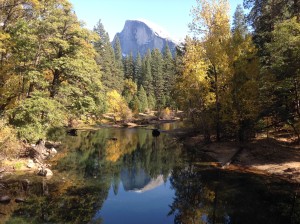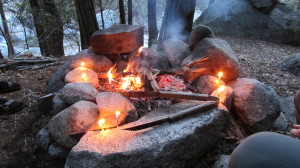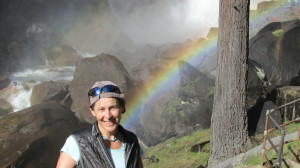Giving thanks allows us to reconnect with the good in life

The holidays provide an opportunity to reflect upon gratitude. Our gift-giving rituals allow us to practice the art of giving thanks.
Gratitude is important for living well. Gratitude affirms life and connects us to others. It can even help us feel in tune with the cosmos. Gratitude is kindness reciprocated. It is the resounding echo of love and generosity.
Research in positive psychology has shown that gratitude is linked to happiness. We become happier when we acknowledge what we’ve got to be thankful for. Gratitude also builds and sustains relationships. If you want to feel better and have more friends, learn to say “thanks” often.
As with other virtues, gratitude should be sincere. Insincere expressions of thankfulness are fruitless. Ingratiating flattery is an inevitable part of social life, where schmoozers use gratitude as a tool. But we are social animals, who are pretty good at detecting phoniness. Only sincere gifts and honest gratitude bear the fruit of friendship.
In the end, love and gratitude rest upon the honesty of genuine social relations. True friendship cannot be faked. And gratitude only develops when you really do have something to be grateful for.
In addition to connecting the virtue of gratitude with other virtues such as sincerity and honesty, the world’s wisdom traditions link gratitude with modesty. The Roman Stoics taught that we should not expect much from life and that when something good happens, we should be thankful. Gratitude develops when we see that simple goods are easily obtained. Nearly everyone has something to be grateful for: health, friends, or life itself. Gratitude grows when we view life as a gift, to be lived simply, honestly, and sincerely.
Gratitude also rests upon moderation of desire. Riches, fame, and power tend to stimulate desire, making us feel — oddly enough — ungrateful. Immoderate desires cause ingratitude, leaving us “spoiled.”
Spoiled people are narcissistic. If they give thanks at all, their gratitude is insincere. They expect to receive; but they don’t feel grateful for what they’ve been given. They become resentful when they don’t get the goods they feel they deserve. Resentment builds as acquisitiveness and ingratitude grow.
The solution is modest simplicity. We should expect little and be thankful for much. This helps us recognize love and kindness in simple things.
Ungrateful resentment is a defect of love. Spoiled people have not learned how to love — either how to receive love or how to give it. The art of gratitude aims to receive love with grace and return it with joy.
Christian ethics helps connect gratitude with love. Christians celebrate a loving God, to whom a sort of cosmic gratitude should be given. Religious gratitude points beyond the social world and the simple goods of life toward divine love that gives us the benefits we enjoy.
Such an idea will cause atheist eyes to roll. Atheists often argue that religious thanksgiving is based upon fear of God or a superstitious desire to curry favor with a mercurial deity. Believers might respond by saying that joyful thanksgiving is not fearful and submissive but, rather, a celebration of the goodness of God.
Believers may also suggest that atheists miss out on something important when they do not feel the cosmic sort of gratitude associated with prayers of thanksgiving directed toward a loving God. The atheist may respond by saying that gratitude can be directed to society or to the natural world, which sustains and inspires us. One can acknowledge that life is good without also thinking that it is a gift from God.
This theological dispute should not distract us from the importance of gratitude and love in human life. We are finite and needy beings, whose basic desire for love is only satisfied by a gift from another. Just as you can’t kiss by yourself, you can’t really say thanks by yourself. “Thank you” points toward another person.
Whether the object of our thanks is God, the cosmos, or our friends and family, gratitude reminds us to see love and appreciate kindness. In this difficult world, love and kindness are never guaranteed. That’s why we should be grateful when good happens. And that’s why we should let the good reverberate by saying thanks.




